Allocation of Funding
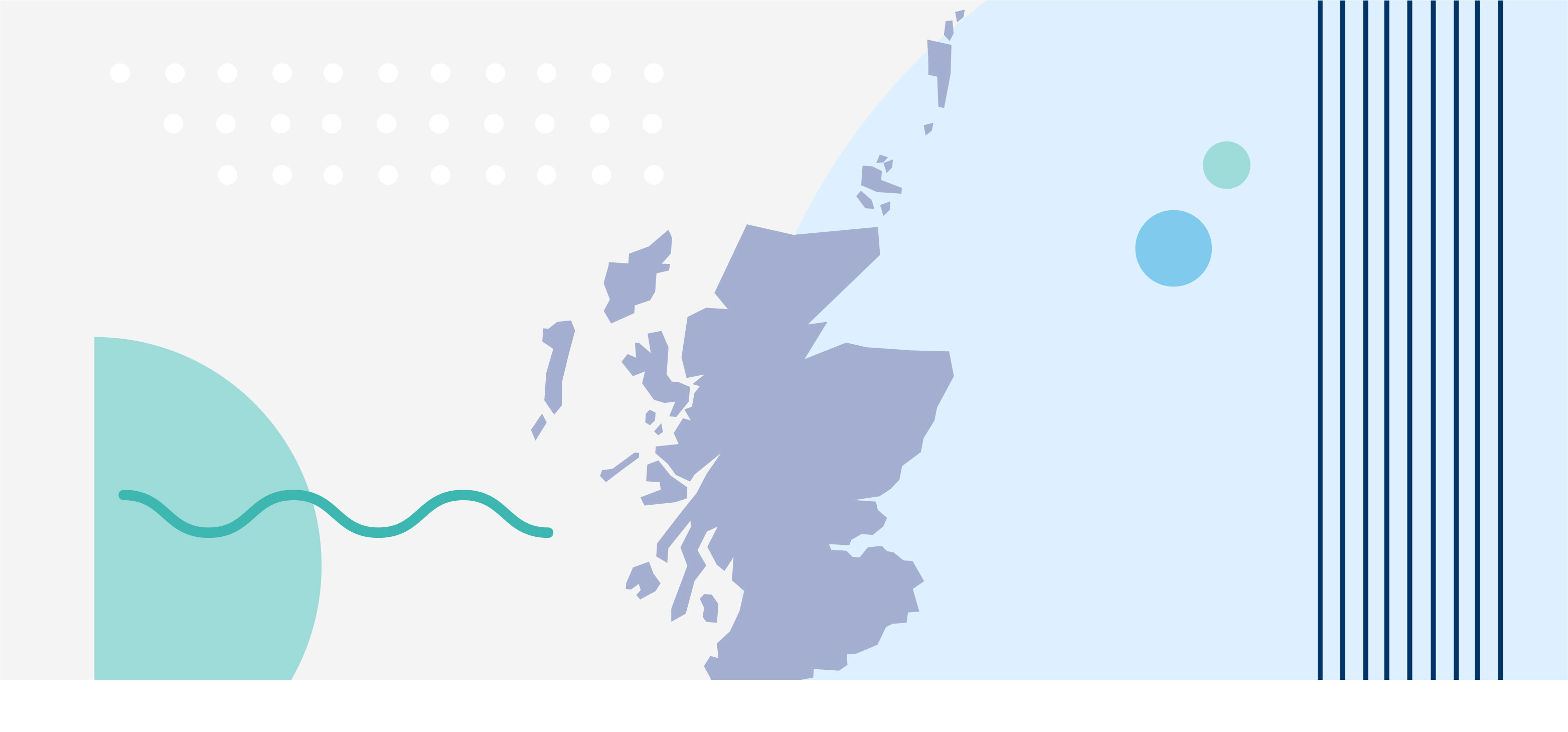
Medical ACT funding is distributed to the Boards via NES by means of a fixed “pot” which is notified annually by the Scottish Government just prior to the start of a new financial year. Distribution of funding is made according to an allocation model; this funding is regarded as a contribution towards the Boards’ costs of delivering clinical teaching to undergraduate medical students but is not designed to reimburse the full costs incurred. The only exception to this is the ScotGEM programme which received ringfenced funding again during 2021-22.
In 2021, the total Medical ACT budget was £96.6m, which represents an ongoing increase over several years primarily due to investment by the Scottish Government in additional student places, along with a focus on developing undergraduate medical education in primary care (see table below for details).
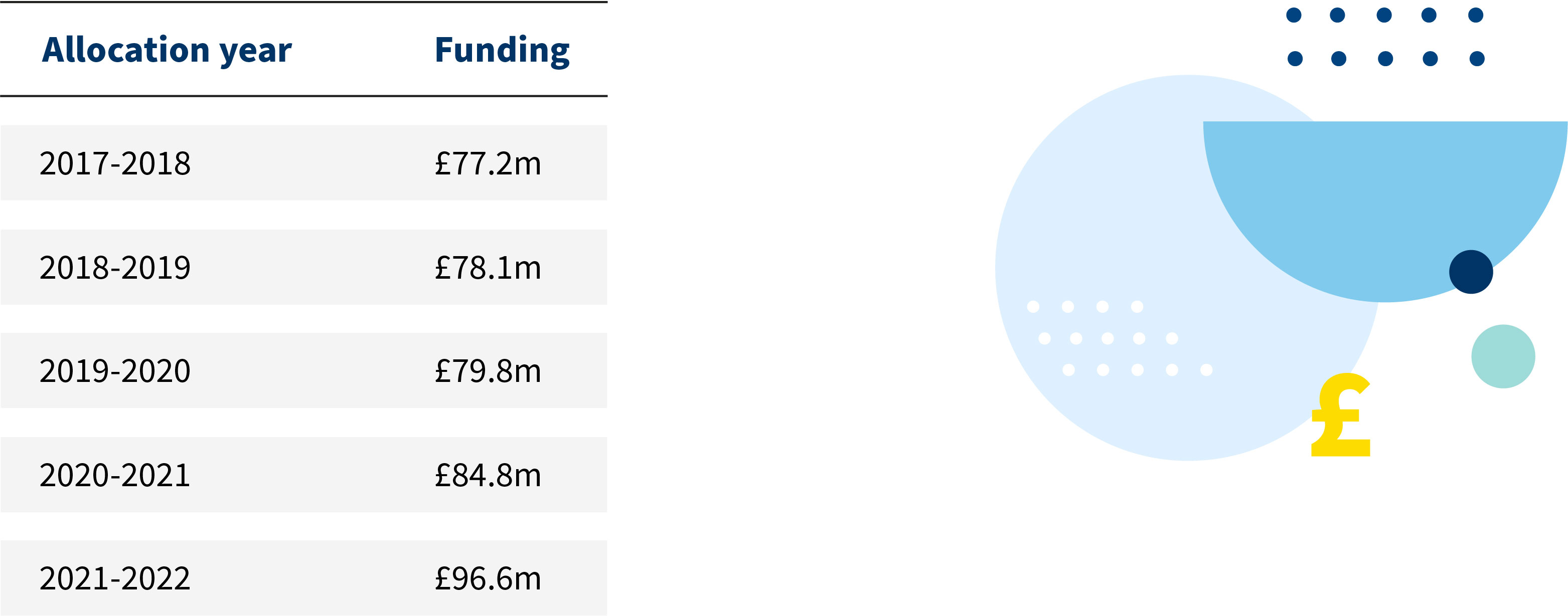
Programme for Government (PfG) outlines the growth in the medical workforce that is required within NHS Scotland. This aspires to fund an extra 100 undergraduate medical places for each year of this parliamentary term, the first of which was implemented for the intake in 2020-21 academic year.
During 2021-22, an extra 100 undergraduate medical student places continued as part of PfG expansion. In addition, a further 55 students joined programmes having deferred their entry from the previous academic year and 10 further widening access places were also funded (bringing the total numbers of widening access places in each of Aberdeen, Dundee, Edinburgh, Glasgow, St Andrews to 12 and therefore 60 nationally).
An extra 30 places at University of Aberdeen as part of the GP Enhanced Programme (GPEP) and 30 places at University of Glasgow as part of the COMET programme (Community Orientated Medical Experience Track) entered their third year in 2021-22. In addition, a further 25 students entered year 2 within the Edinburgh HCP-Med Programme. The latter is a 5-year graduate entry medical programme with a primary care focus, aimed towards recruiting established health care professionals. Students are placed longitudinally within GP practices at an early stage of the programme, usually within their own Health Board area, to allow them to continue to work and study simultaneously.
Finally, a further 115 undergraduate medical student places were also granted in response to the regrading of exam results, directly as a consequence of the COVID-19 pandemic disruption to Higher and A level exams.
Notification of funding amounts came to NES in the second half of the financial year, making it challenging for Boards to consider proposals for additional spending as all funds required to be used by the end of 2021-22. The Medical ACT team worked hard during this period and all funding was dispersed within the deadline. In addition, the NES Director of Finance was able to identify additional funds to support Medical ACT which were used towards capital infrastructure projects in several Boards, which was important to build capacity for undergraduate accommodation.

Allocation of Medical ACT Funding to Boards 2021-22 per June 21 allocation letter

Table 1a: Medical ACT Allocation by Programme (Aberdeen, Dundee, Edinburgh) at Stage 2
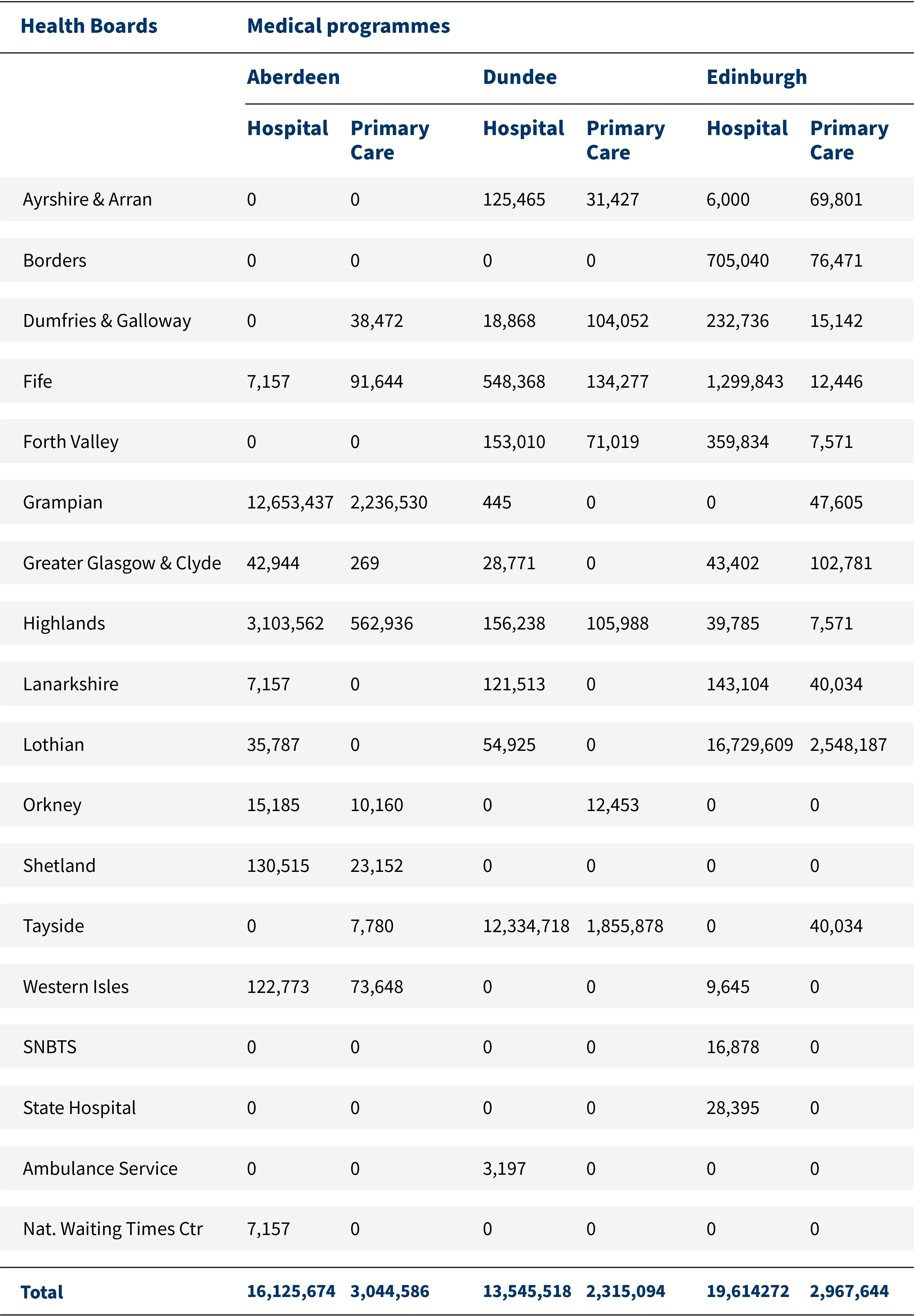

Table 1b: Medical ACT Allocation by Programme (Glasgow, St Andrews) at Stage 2
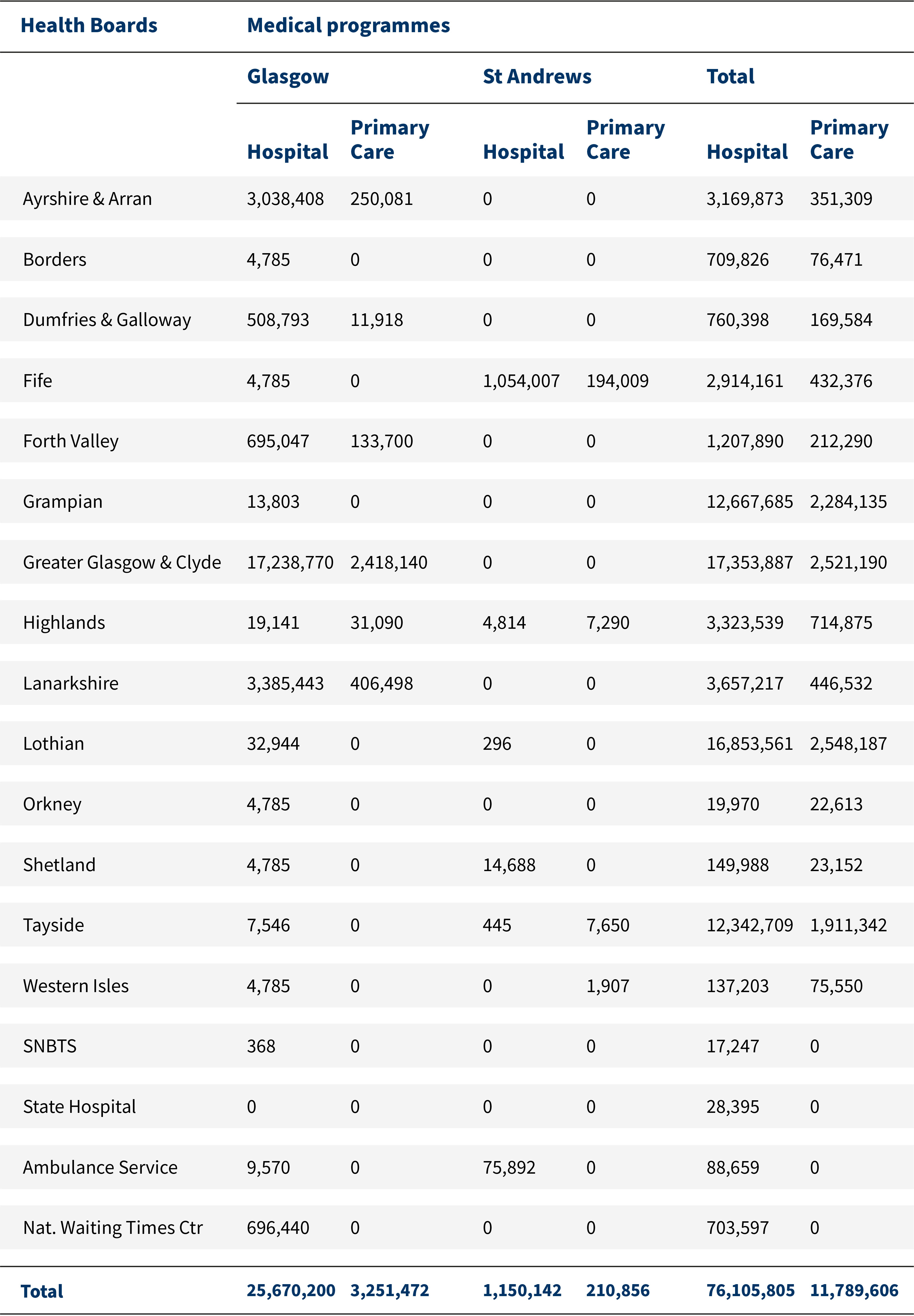

Table 2: Medical ACT Allocation following smoothing—Stage 3
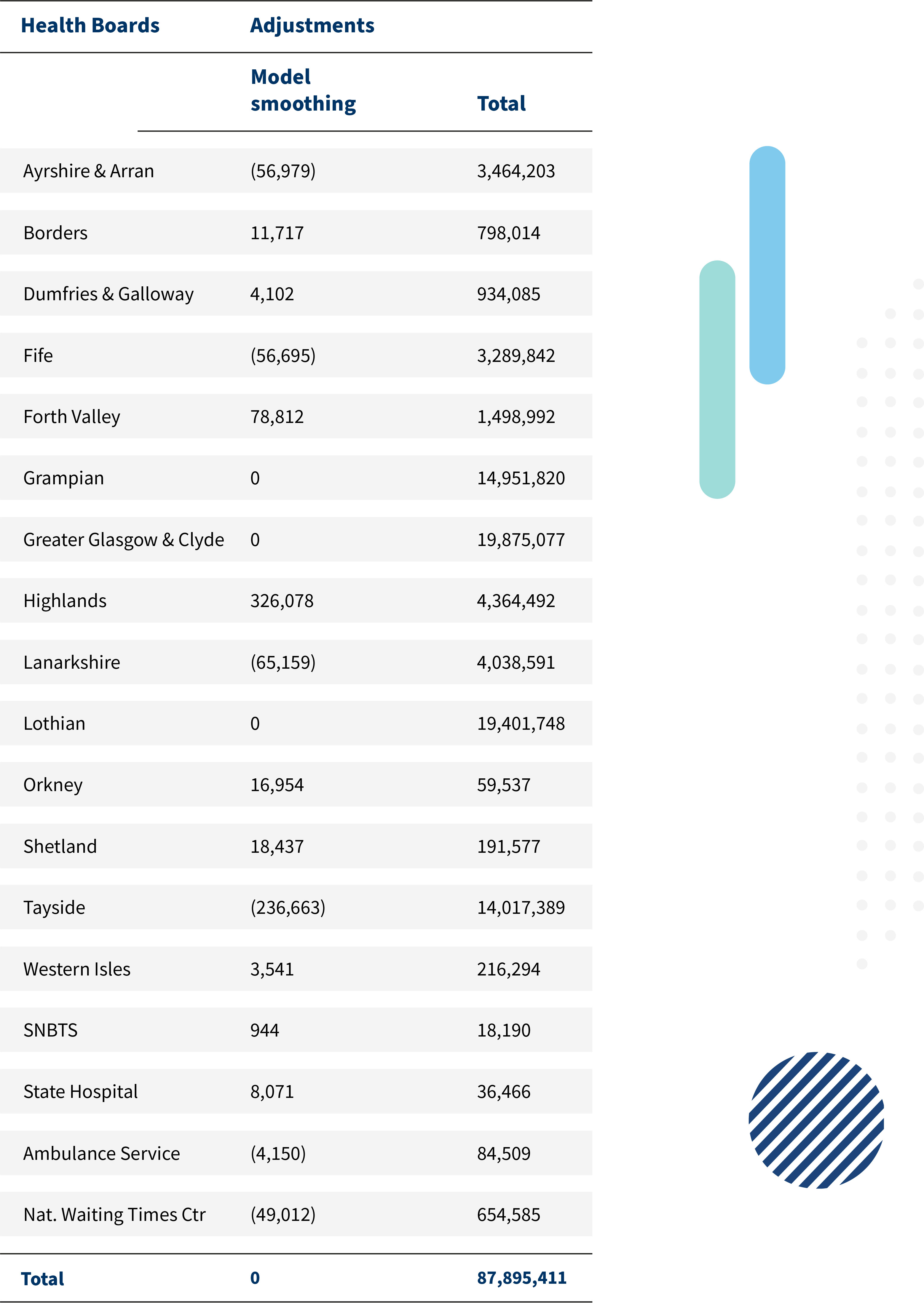

Table 3: Distribution of Additional Medical ACT Funds by Board (according to new student places funded during 2021-22)
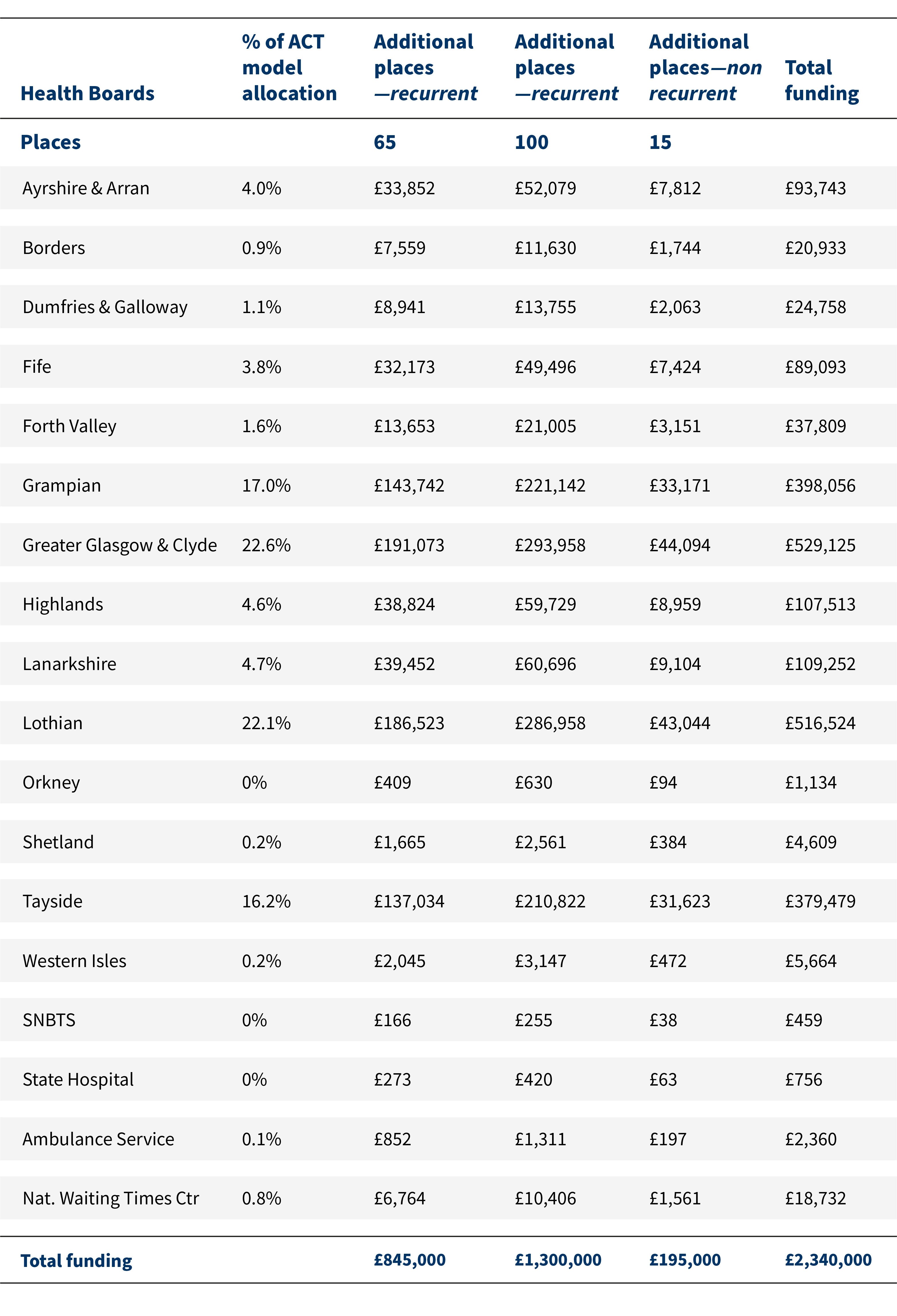
* Recurrent: ongoing places / non-recurrent: for that year only

